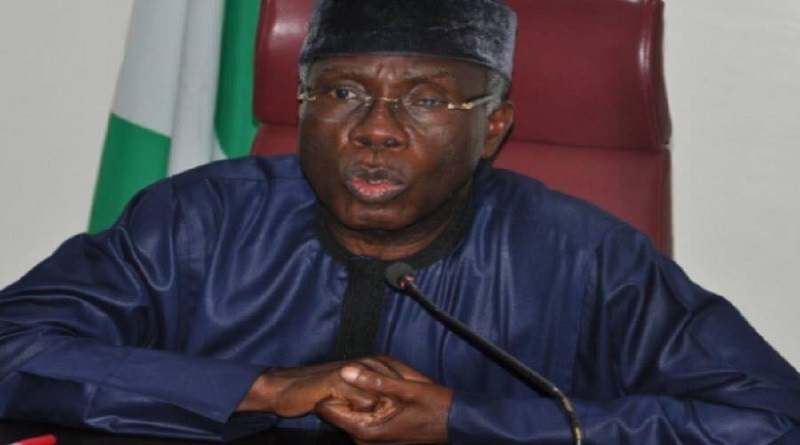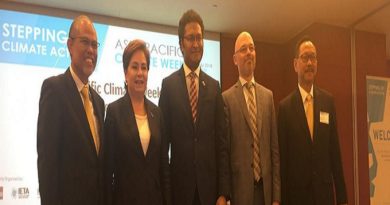Nigeria convenes expert panel to develop new agriculture investment plan
The Nigerian Government welcomed senior officials from the African Union Commission and agriculture experts from across the continent for an intensive three-day meeting to develop a new national agriculture investment plan (NAIP) that will provide a blueprint for returning agriculture to its once prominent role anchoring Africa’s largest economy.
“We are here to ensure the Malabo commitments are aligned into the government’s plan for agriculture, which remains a particularly important revenue generator for this country,” said Dr. Ngozi Okonjo, Director-General, Nigeria Federal Ministry of Agriculture and Rural Development. “We want a detailed plan of action, one that signals to our private sector partners that Nigeria’s agriculture sector is open for business and primed to deliver new income opportunities to the millions of Nigerians who depend on farming and food production for a living.”
The key purpose of the meeting—organized by the AU Commission and the New Partnership for Africa’s Development (NEPAD)—is to review and refresh the plan for making crop, livestock and fisheries the centerpiece of Nigeria’s economic development agenda. The effort also will ensure Nigeria’s NAIP is aligned with commitments contained in the AU’s 2014 Malabo Declaration, which seeks to cut poverty rates in half by 2025 through agriculture-led economic growth.
“The NAIP remains a central tool for the Comprehensive Africa Agriculture Development Programme (CAADP) implementation as it translates the continental and country aspirations into an evidence based plan with clear targets, budgets and mutual accountability,” said Ernest Ruzindaza, Senior Advisor and CAADP Team Leader, African Union Commission. “It’s inspiring to see such a diverse group come together to determine exactly how Nigeria is going to generate the investments required to energize a sector that embodies the hope for a better future for all Nigerians.”
Nigeria has many of the key attributes—including large tracts of fertile land, a favorable climate, and a large, educated workforce—to become a global player in agriculture and food production.
“A bold, concise investment strategy that sets out government responsibilities and a clear timeline for delivering on them can unlock investments from other partners and generate the productive, prosperous agriculture sector Nigeria needs and deserves,” said Dr. Makinde Kehinde, Nigeria Country Lead for the Alliance for a Green Revolution in Africa (AGRA).
Experts noted that NAIPs are considered the key to realizing the ambitions of Africa’s Agenda 2063, a detailed 50-year framework for transforming African economies through inclusive growth and sustainable development.
Participants in this week’s meeting include representatives from key development partners, donor governments, the Food and Agriculture Organization of the United Nations (FAO), the World Bank, and the African Development Bank. Also in attendance are and representatives from agriculture businesses and civil society groups that work in Nigeria, including the Nairobi-based AGRA, Africa Lead, and the International Food Policy Research Institute (IFPRI).
The consultations come on the heels of the release last month of Nigeria’s Zero Hunger report. The manifesto calls for bringing modern and sustainable production methods to Nigeria’s smallholder farms, while creating more market opportunities by establishing trade corridors, processing zones and industrial parks that can connect Nigerian farmers to consumers in Nigeria’s urban centers.
Organizers of this week’s NAIP meeting expect to emerge from the consultations with a roadmap that re-enforces the call to action in the Hunger report with a detailed multi-year spending plan for agriculture that is tied to a performance scorecard to publicly monitor progress.
The refreshed NAIP also will build upon the Nigerian Government’s Agriculture and Food Security Strategy and its recently approved “Green Alternative” policy, both of which emphasize agricultural transformation as crucial to Nigeria’s economic diversification. Recent declines in oil prices have re-enforced the importance of a diversified economy in Nigeria and officials are looking to investments in agriculture to reduce food imports, create employment, improve livelihoods and generate foreign exchange.
Nigeria was largely self-sufficient in food production through the 1960s, but agriculture’s dominant position declined as oil became major source of revenue. Today, Nigeria imports about US $11 billion worth of wheat, rice, sugar and fish each year.
“We see many opportunities in Nigeria to boost food production by introducing higher-yielding, climate smart crop varieties and improved fertilizers along with support for private sector marketing activities,” added Kehinde. “The Guinea Savannah and Sudan Savannah regions are particularly ripe for progress, as they offer both fertile agriculture lands and large populations that are skilled in farming and eager for new economic opportunities.”




